Behind the scenes at a Tokyo bridal salon
- Published
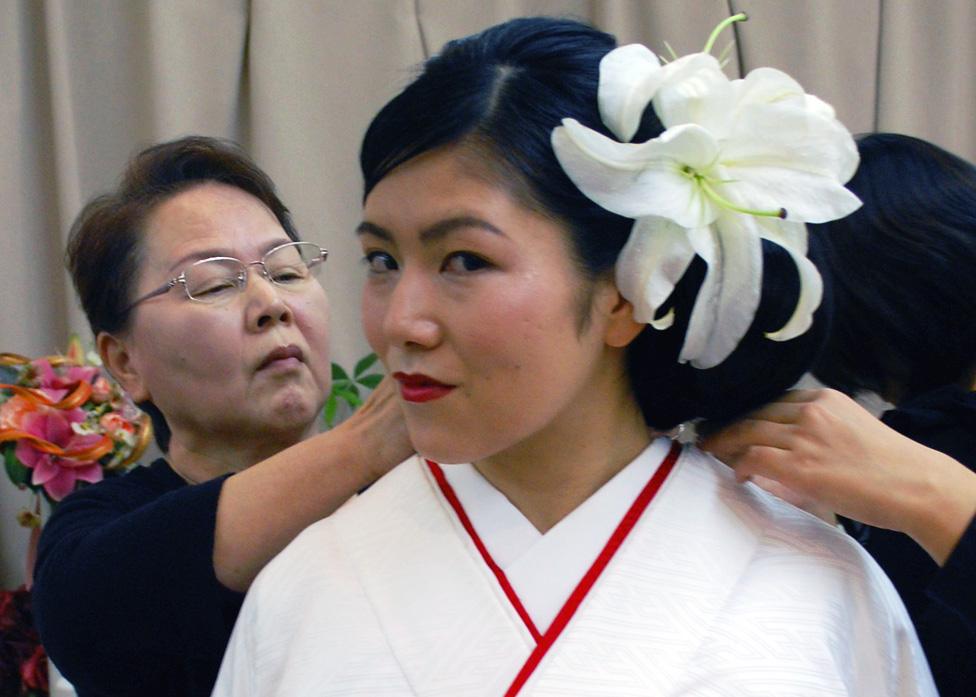
What does the way you look say about you? As part of the BBC's Identity season, we will be visiting hair salons in cities around the world. In Tokyo, we go behind the scenes at a bridal salon.
On the fifth floor of an apartment block in the upmarket Gotanda district of Tokyo, Hitomi Tezuka is preparing to put on a bridal kimono. It's a national holiday so it's quiet - she and her fiance Takeshi Sasaki are the only clients. They both work, so they're taking advantage of the holiday to have their wedding photographs taken.
Among rows of pink and white western-style dresses hang beautifully-embroidered kimonos - real works of art that can cost more than a million yen (about $9,000; £6,000) to buy.
The expense is the reason many people choose to rent their wedding outfits, says Miyoko Nagaiwa, the manager of Calane bridal salon - after all, they're only worn once. But even renting is costly.
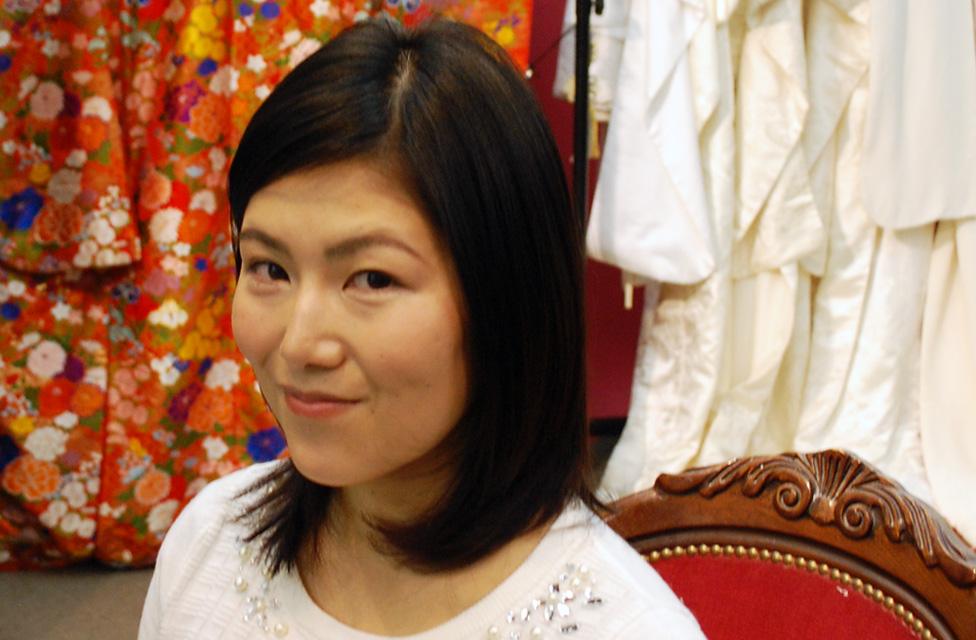
In many ways, Hitomi is thoroughly modern - she works as a golf instructor and she met her husband-to-be via social media. But she's also a bit old-fashioned.
"I wanted to wear a kimono because it's our tradition," she says. She has only worn a kimono twice before, for coming-of-age ceremonies at three and 20.
For the wedding itself she plans to wear a western-style dress. A kimono takes too long to put on, and she doesn't want to keep the guests waiting.
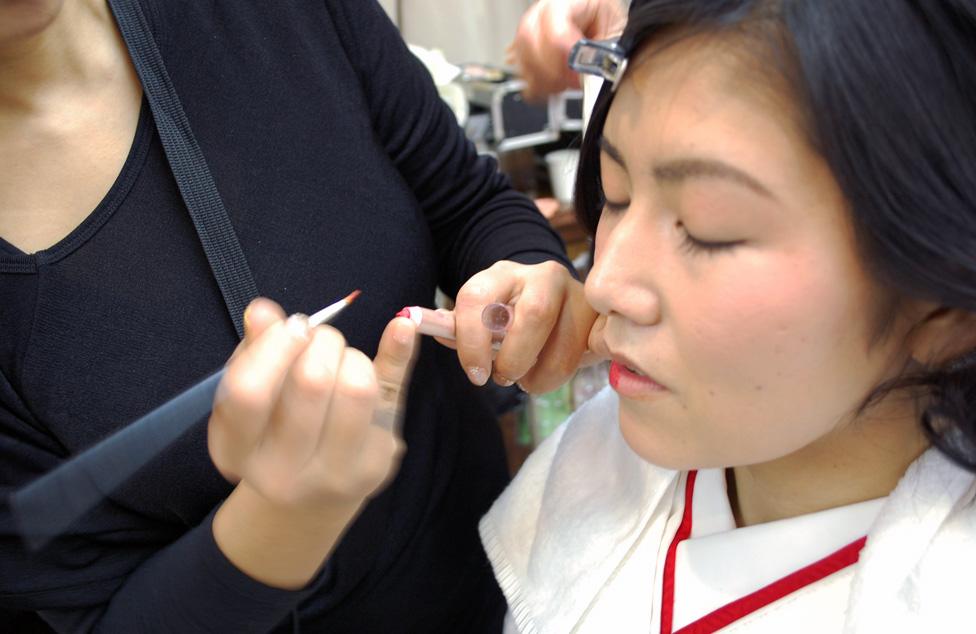
Once she has put on the proper undergarments, Hitomi emerges from behind a curtain and sits down. A team of four women get to work on her hair and make-up.
"The trend for hair now is a mixture of Japanese and Western-style," says Maki Ishiguro, the stylist, while she puts white lilies in Hitomi's hair.
Hair and love are intertwined in Japanese culture.
"A long time ago girls in Japan would cut their hair when they lost their love," says Hitomi. "Cutting your hair means cutting all your memories - it's a new start."
She's growing her hair for her wedding in June.
Hair styles are strictly regulated in Japan, and dyed hair is still frowned upon in certain quarters. Takeshi dyed his hair when he was a student, but that would not be acceptable now that he works in sales and has to entertain clients.
As an athlete in high school, Hitomi was also expected to keep her hair black. "At golf tournaments you can't dye your hair because the mentality is that you should focus on the sport and not on following fashion," she says. "If you have time to dye your hair you should put more effort on improving your game."
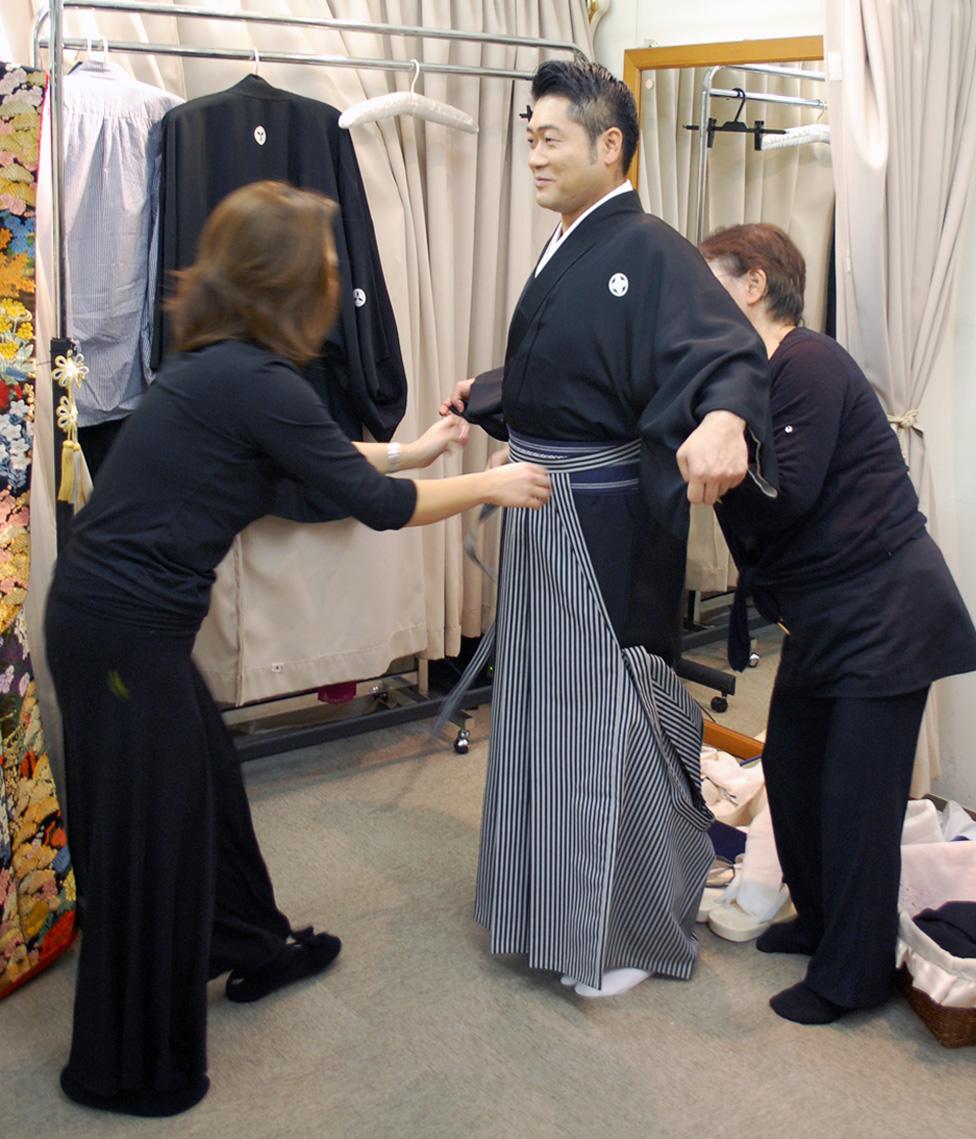
The couple started going out after Hitomi gave Takeshi a golf lesson.
Takeshi says he likes "everything" about her. "Especially her behaviour is very nice. It's very Japanese traditional behaviour so it's very attractive for me," he says.
"Behaviour is very important to survive in this society."
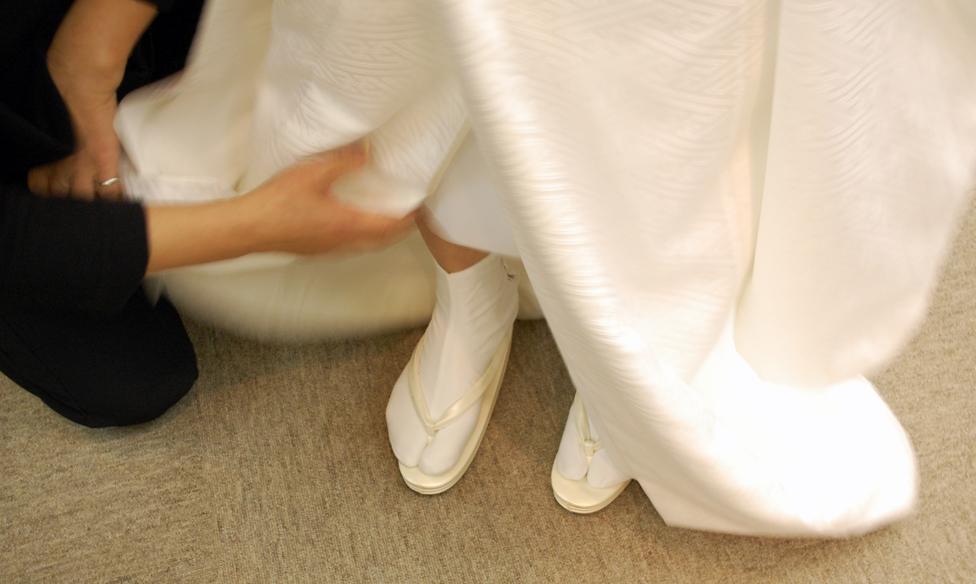
"He is very gentle and thinks about me as first priority," says Hitomi about Takeshi.
She also appreciates his work ethic. "I don't know much about his work but I see him working so hard, so that's one of the reasons I was attracted to him," she says.
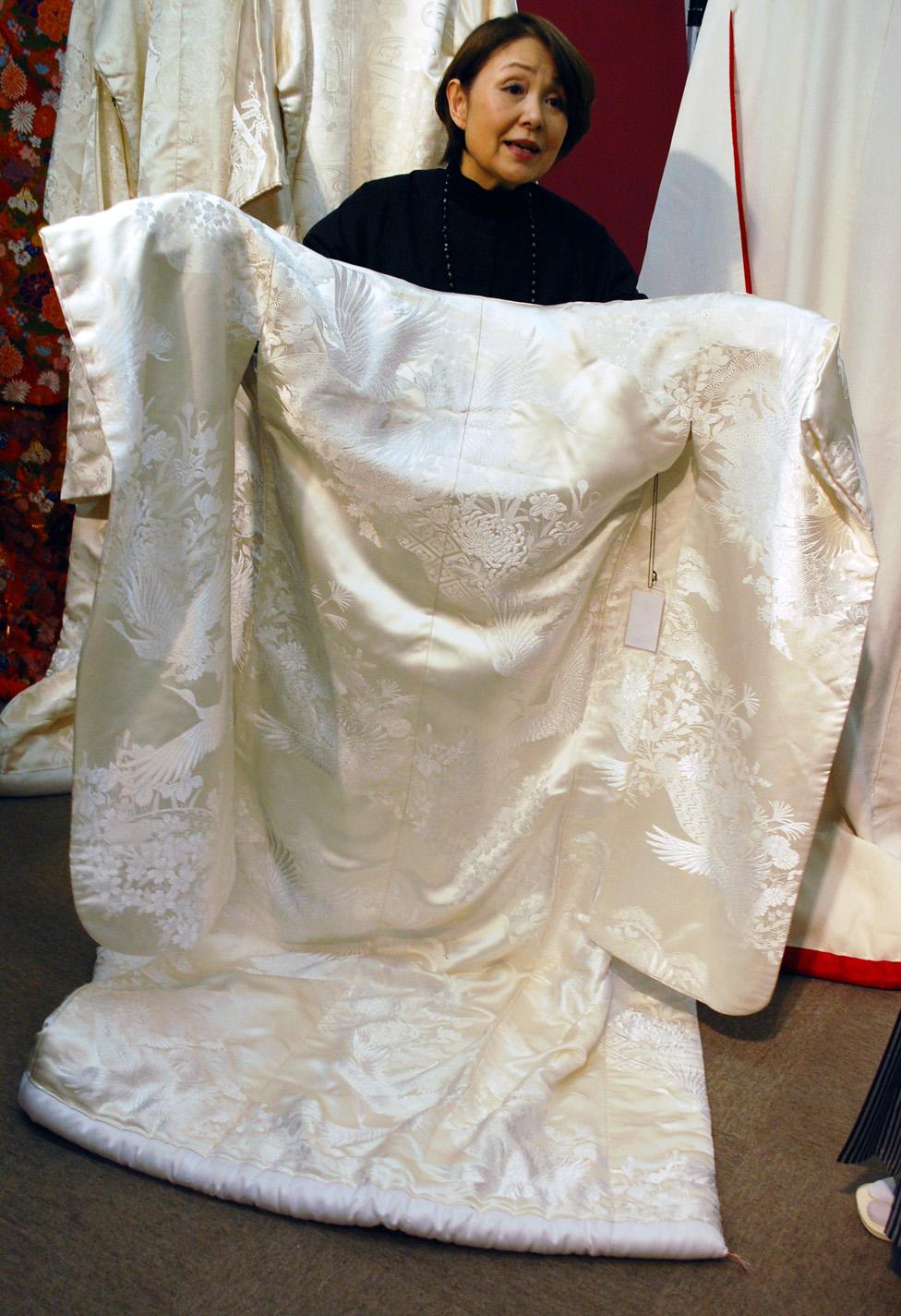
Hitomi has chosen a white kimono with the pattern of a crane, a bird that symbolises long life. It is paired with red lipstick and other bright red details.
Takeshi says that the red and white represent Hitomi's rebirth into a new family.
"She's white, like a baby, and the red means blood - the blood is connected from old family to new family," he says.
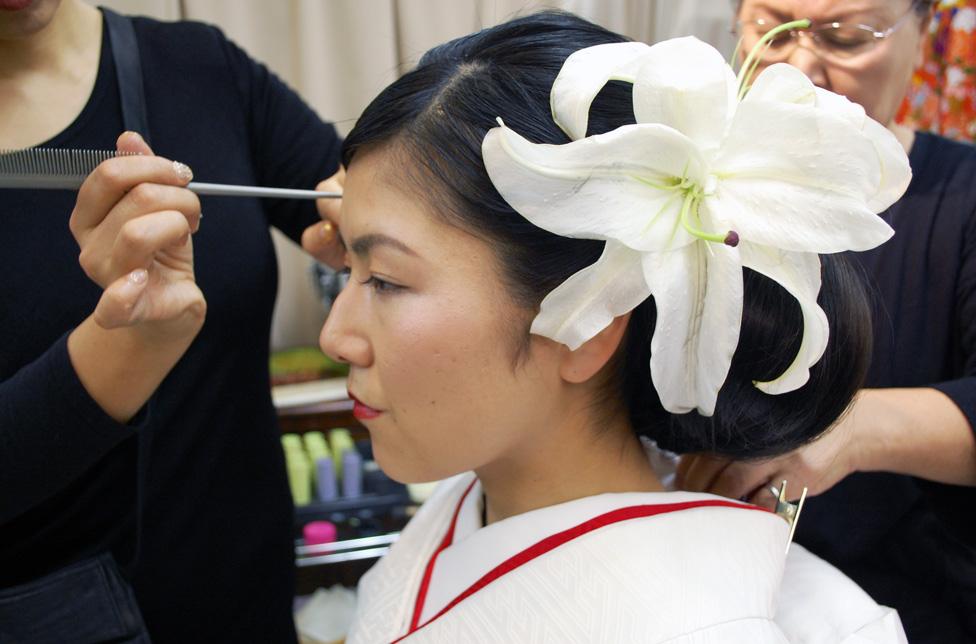

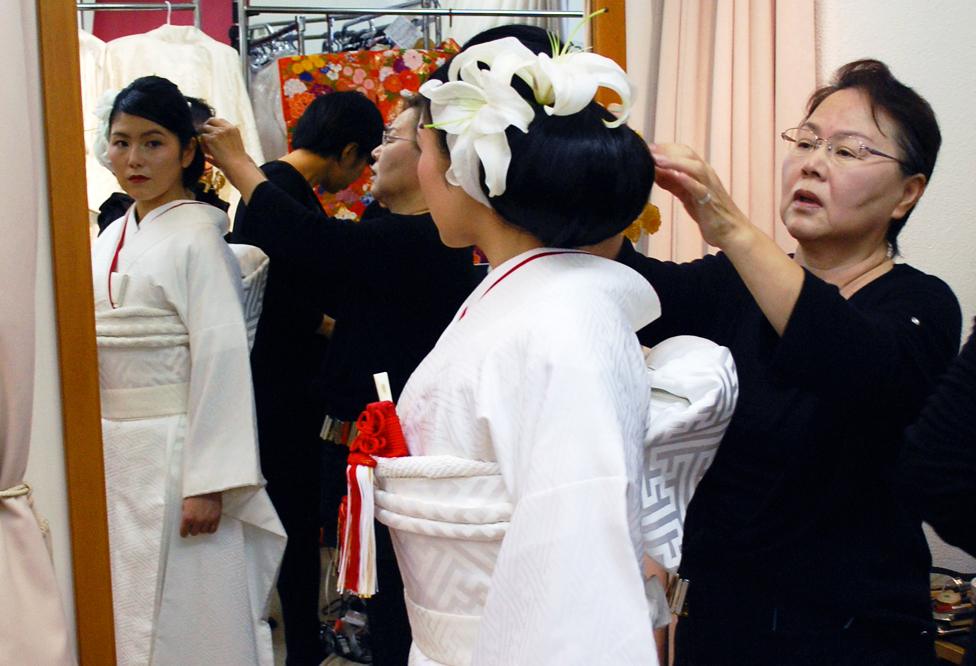
Once an obi bustle pad is tied on, Hitomi is finally ready to put on the kimono itself.
"This looks wonderful," she says, looking at herself in the mirror.
It's a sunny day, so the couple head out to take have their picture taken at a shrine.
Takeshi admits the shrine doesn't hold a huge religious significance to him. "It's important to marry," he says. "This is just ceremony."
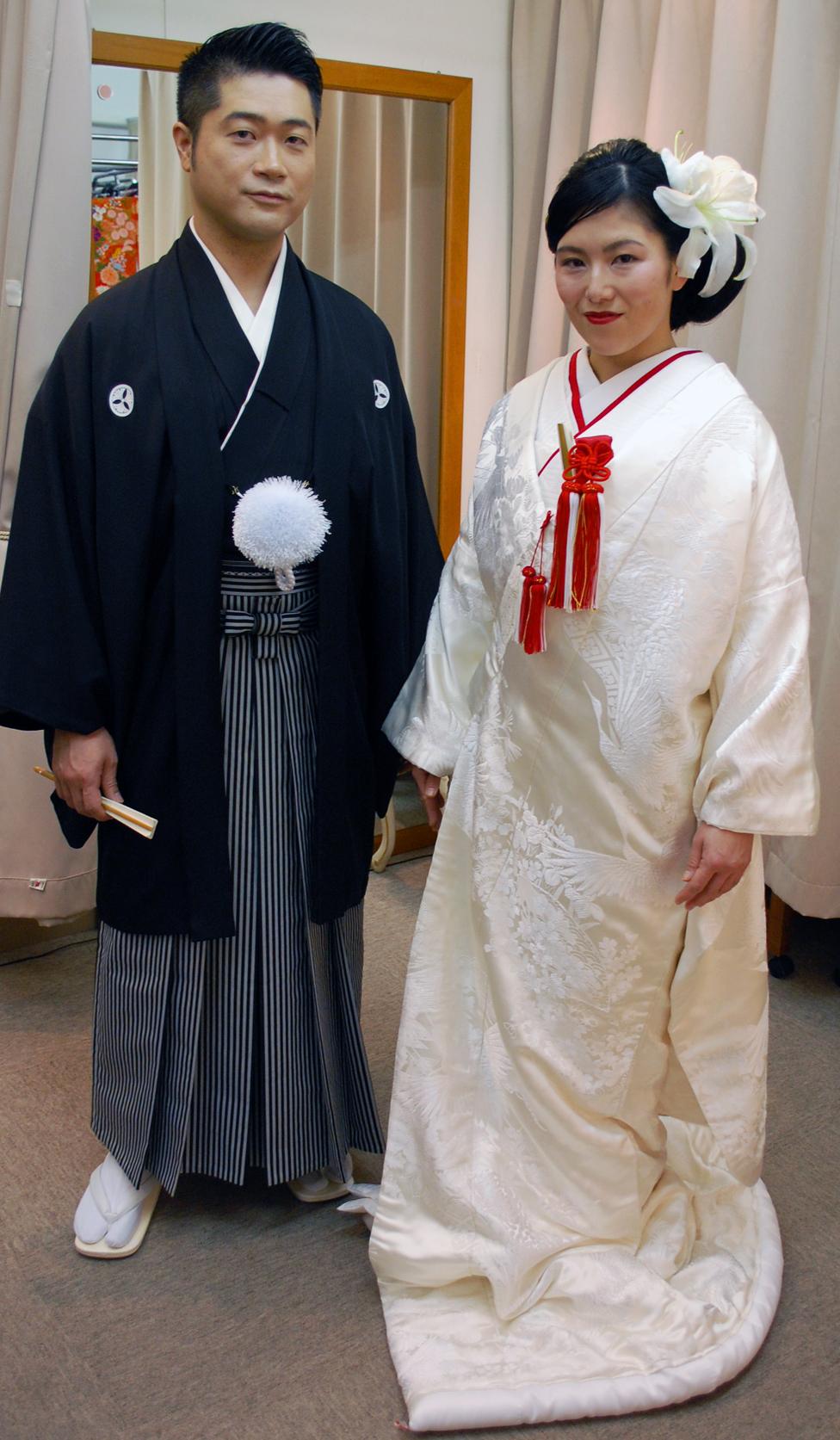

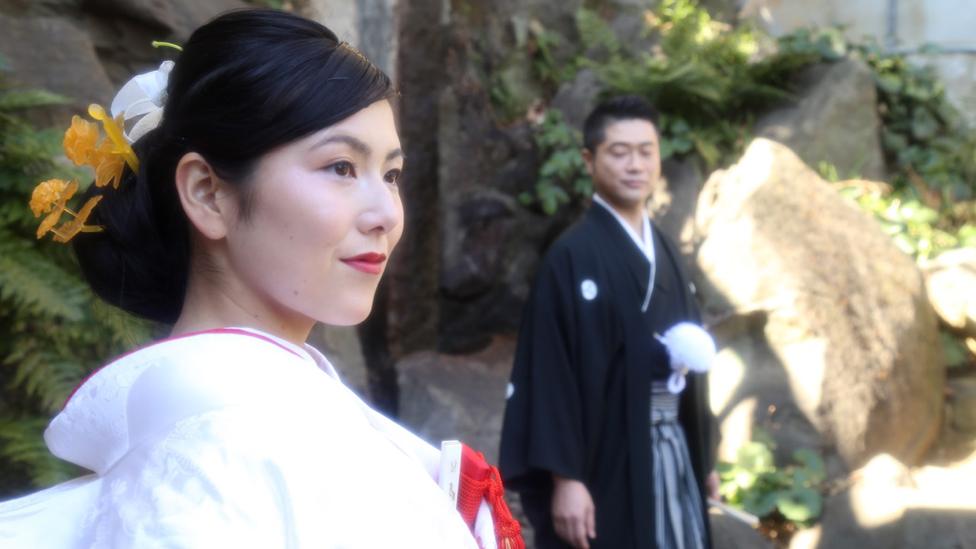
Photos and story by Vibeke Venema. Bridal photograph by Kayoko Nakashima.
Go to bbc.com/salon for more stories of women's identity from the hairdresser's chair


As people become increasingly connected and more mobile, the BBC is exploring how identities are changing.
Catch up with programmes, downloads and clips from the season.
Where are you going? - The surprising answers to a simple question
Default World - The morals of the technical elite
Learn more about the BBC's Identity season, find all the programmes or join the discussion on Twitter using the hashtag #BBCIdentity, external.